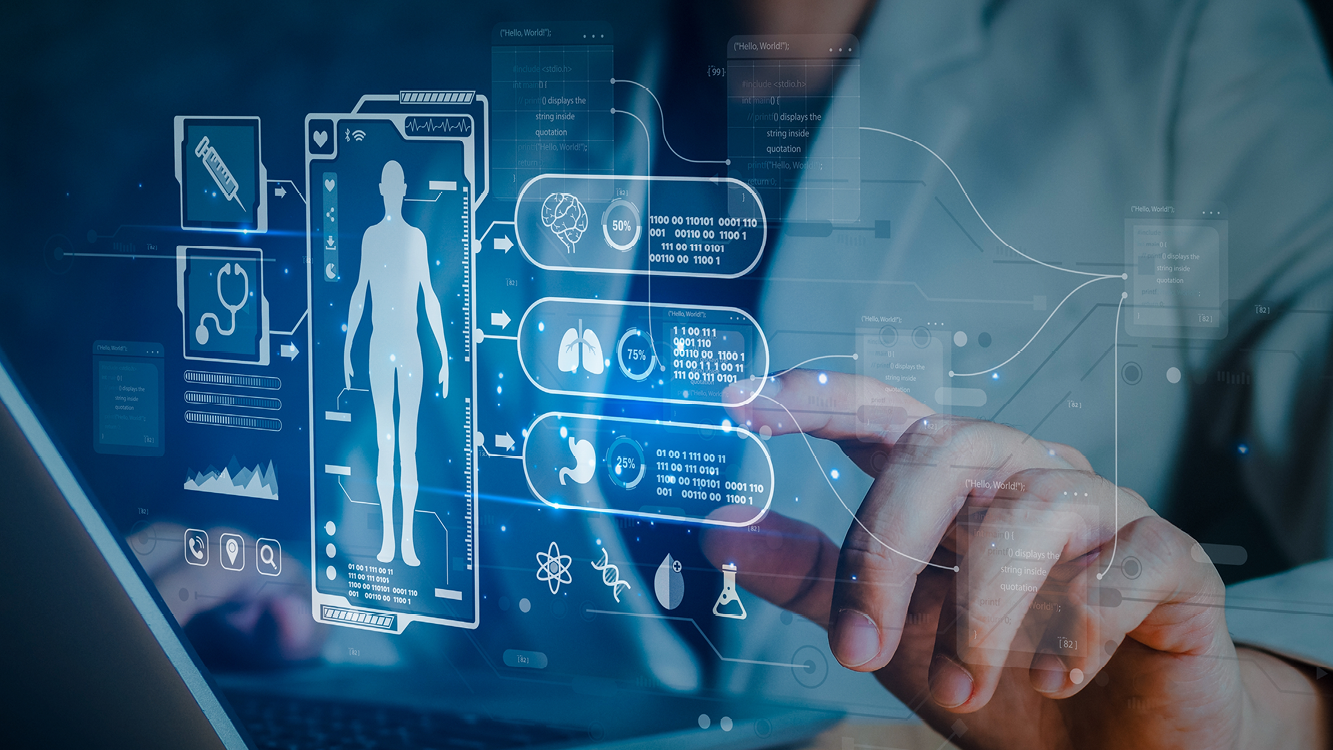Don’t Overlook These 2024 Healthcare IT Trends
Engaging patients and providing care digitally requires new technology. Meet the demand.
BlueStar's diverse portfolio offers unparalleled access to premium products and services that drive business growth and success. From state-of-the-art hardware to advanced software solutions, our portfolio is designed to empower businesses with the tools they need to thrive in today's competitive landscape.
Our vertical-based content focuses on different industry technologies, solutions, and insights.
A true VAD offers top-notch pick, pack and ship services, and provides programs and services that add value to the distributed products that increase their value or worth.
The BlueStar Difference3 min read
BlueStar June 28, 2024 4:24:20 AM EDT

Take the opportunity to provide solutions that give healthcare organizations access to information and allow them to save time and enhance the quality of care.
Healthcare providers are exploring how technology can help them operate more efficiently and improve patient care – especially as they address nursing shortages within an aging population. The need for solutions that enable healthcare organizations to provide a high quality of care while facing challenges has propelled growth in the digital healthcare technology market, which is expected to reach a market volume of USD 46.36 billion by 2028. The Medtech market is also growing by 5.7 percent annually, positioning the European medical device market as the second largest in the world.
Although healthcare organizations are planning investments in healthcare technology and Medtech, technology solutions providers (TSPs) will find that these clients need services to implement and manage them. This represents an even bigger opportunity for TSPs to grow their businesses.
When you consult with your prospects, remember that healthcare organizations want to work smarter while improving patient outcomes. Educate your market on implementing or upgrading the following solutions to enhance operational efficiency and care.
Patient ID
Positive patient identification is the foundation for optimal patient care. Barcoded wristbands make critical information accessible to all practitioners and staff interacting with patients during a hospital stay. Scanning a barcoded wristband enables instant access to:
Asset Tracking
Implementing a real-time location system within a healthcare organization saves time and helps keep procedures on schedule. In the fast-paced hospital environment, mobile carts may not always make it back to their assigned location. With asset tracking, staff can instantly know where carts – or any other equipment or supplies – are located. Real-time asset location information decreases delays, mitigates the potential for theft, and allows patient procedures to proceed efficiently.
Additionally, asset tracking helps monitor availability, allowing teams to know what is or is not in use. This provides the best equipment allocation and allows the organization to get the most value from its investments – rather than having equipment sit idle. It also helps control costs. Data sharing across the organization gives managers visibility into inventory and where and when it is being used, so they can avoid making unneeded purchases. Asset tracking also enables optimal maintenance schedules, ensuring they don’t interfere with care or operations.
Remote Patient Monitoring
As consumer adoption of devices like smartwatches and fitness trackers grew, healthcare providers also began to look for ways to continuously monitor patients and make proactive care choices based on data and predictive analytics. Whether in the hospital or at home, a variety of wearable devices can improve monitoring and care, such as biosensors that monitor vital health signs, smart thermometers, and internet-connected inhalers. Your healthcare clients will also need your help to implement these solutions securely, protecting data and patient privacy.
Telehealth
The European telehealth market is expected to grow at a CAGR of 8.8 percent, reaching USD 6,309.21 million by 2029. Access to care is a crucial driver of growth, especially for patients who lack transportation or live far away from medical facilities. Another driver is the need for better analysis of a patient’s health conditions, which telehealth can provide. By using secure portals and wearable technology, providers can more easily track treatment and collect or access data from patient wearables. This allows them to make data-driven decisions that improve patient outcomes while allowing more patients to be seen by providers.
Healthcare-Ready Hardware
While technology aids in optimal efficiency and delivering better patient outcomes, IT devices, touchscreens, tablets, smartphones, and scanners are also places where viruses and bacteria can grow and be carried from room to room. In Europe, 4.3 million patients are affected by healthcare-associated infections, creating a significant challenge to patient safety.
Healthcare organizations are looking for ways to reduce the spread of infection. One area is reducing viruses and bacteria on shared healthcare technology devices. One study demonstrated that 83 percent of orthopedic surgeons had bacteria on their cell phones when they went into surgery.
Deploying devices specifically designed for healthcare use can lower the risk of healthcare-associated infections. Healthcare-ready hardware is manufactured using fewer exposed screws, seams, and bezels that are difficult to clean and with materials that won’t degrade quickly from frequent exposure to harsh chemical cleaners and sanitizers. Additionally, these devices are often infused with antimicrobial technology, significantly decreasing the bacteria that can grow on device surfaces.
Healthcare organizations' IT departments often have full schedules, and implementing new technology takes time that they don’t have. Not only will they require expertise to ensure these technologies are integrated seamlessly into their existing IT environments, but they also need monitoring and maintenance to ensure they continue to perform optimally. By leveraging your knowledge of healthcare technology and your expertise in the industry, you can help your healthcare clients operate smarter and more efficiently.

Engaging patients and providing care digitally requires new technology. Meet the demand.

Information is vital to quality healthcare. The solutions you provide can keep the lines of communication open.

Solution providers who can create total solutions are poised to take advantage of a great opportunity.